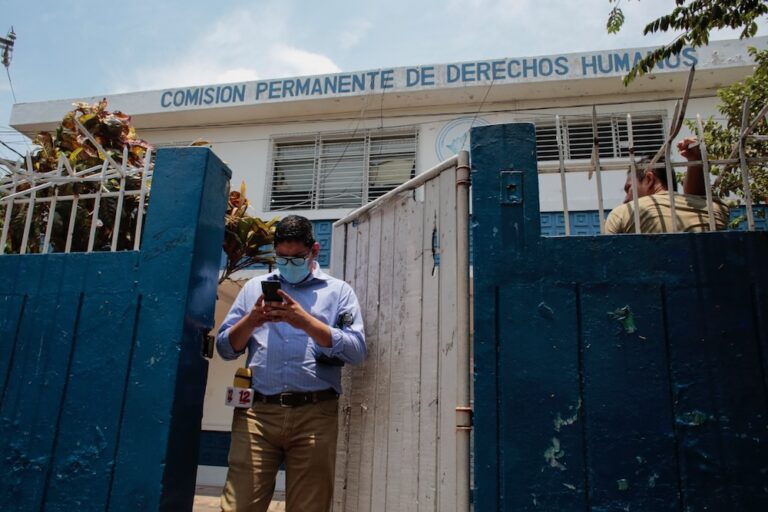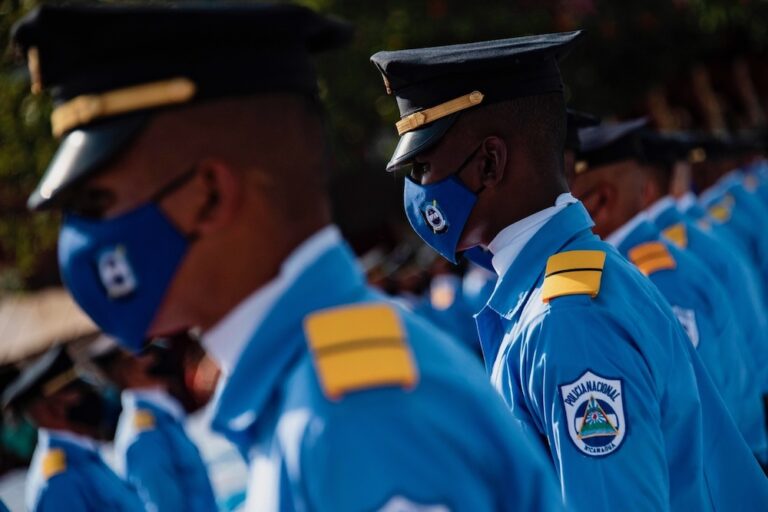(IAPA/IFEX) – The following is a 19 September 2007 IAPA press release: Controversy over increase in import duties limiting newspaper supplies in Nicaragua raises IAPA concern The organization calls for prompt decision on claim that action is unconstitutional MIAMI, Florida (September 19, 2007) – The Inter American Press Association (IAPA) today voiced concern to the […]
(IAPA/IFEX) – The following is a 19 September 2007 IAPA press release:
Controversy over increase in import duties limiting newspaper supplies in Nicaragua raises IAPA concern
The organization calls for prompt decision on claim that action is unconstitutional
MIAMI, Florida (September 19, 2007) – The Inter American Press Association (IAPA) today voiced concern to the Nicaraguan government at limits placed on newspaper production supplies as a result of a tax burden on the press, saying it contradicts principles of press freedom and free speech guaranteed under the Central American nation’s Constitution.
At issue is a dispute between the daily newspaper “La Prensa” and the Customs Service, which has accused the newspaper of being behind in the payment of duties for imported supplies. The IAPA called publicly on the Nicaraguan Supreme Court to take up an appeal by “La Prensa” claiming that the Customs Service’s stance is unconstitutional and violates Law 528, also known as the Arce Law, which regulates import duties on supplies for the news media.
An initial appeal was submitted in mid-2005 by a group of news media, arguing that Law 528 violates Article 68 of the Constitution, which exempts from duties imported “paper, machinery and equipment and spare parts for print, radio and television news media, as well as the importation, circulation and sale of books, brochures, magazines, school and scientific educational materials, newspapers and other periodical publications.” “La Prensa” filed an injunction against the Customs Service last month.
IAPA President Rafael Molina and the chairman of the organization’s Committee on Freedom of the Press and Information, Gonzalo Marroquín, declared, “It is time for the Nicaraguan Supreme Court to make a definitive ruling in order to resolve this matter so that neither freedom of the press nor the right to information and the credibility of either the media or the government are harmed.”
Article 17 of Law 528, whose passage was sponsored by Sandinista congressman Bayardo Arce, holds that major contributors shall be exempt from payment of import duties up to 2.5% of the gross revenues they reported in the previous fiscal year, and lesser contributors up to 5%. The law was passed on March 15, 2005 and published in the Official Gazette on May 31 of that year.
Marroquín, who led an IAPA mission to Nicaragua in 2005 that met with members of the national legislature, said that it is also their responsibility to establish mechanisms to protect rights and constitutional guarantees. In this regard, he said, he had learned of a bill titled “To Strengthen Freedom of the Press” that seeks to establish regulations under Article 68 of the Constitution exempting print, radio and television news media from duties on production supplies. The bill would also repeal Article 17 of Law 528, governing payments of import duties for basic production supplies, such as newsprint, by news media outlets.
Marroquín recalled that the IAPA “does not defend or demand privileges for the media, but there is a concern when we witness attempts to change the law just to punish media because of their editorial policy”.
The controversy arose after “La Prensa” last week sought to avoid payment of import duties for newsprint that would be exempted under the 2.5% rule. In response, the Customs Service demanded payment of what it alleged was a past due amount and required the newspaper to commit to pay duties over and above the 2.5% level should that level be reached. “La Prensa” executives refused to comply, citing the appeal pending before the Supreme Court.
Representatives of “La Prensa” were also indignant at the fact that the Customs Service had issued a publication in which the newspaper was accused of owing some $740,000 in import duties.
In an editorial “La Prensa” denied that it has any outstanding debt with the Customs Service and said that “collection of [such] a tax is unlawful and goes against constitutional guarantees,” explaining that over the past two years the newspaper paid $1.8 million in income tax, value added tax, city tax and property tax.


